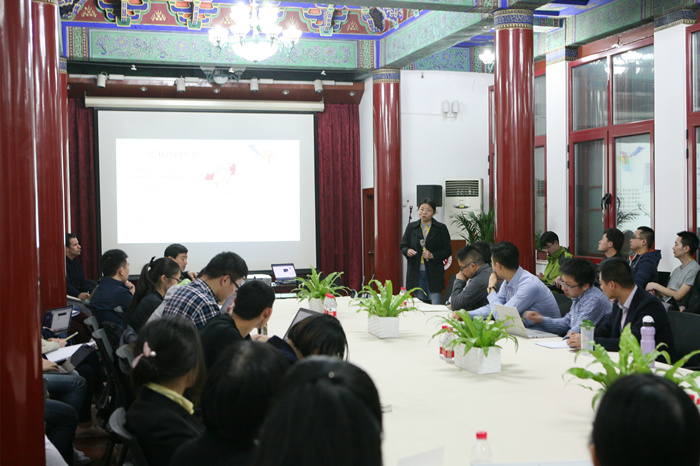
On the evening of March 27, 2018, the Institute of International and Strategic Studies (IISS), Peking University (PKU) held the 22nd “North Pavilion Seminar”. Qian Xuemei, Associate Professor of School of International Studies, PKU, and Special Research Fellow of IISS, PKU, delivered a lecture entitled "The Evolution of Taliban". This lecture was chaired by Associate Prof. Guan Guihai, Executive Vice President of IISS.
From the key words that usually feature Taliban, Qian Xuemei introduced the emergence and the evolution of Taliban as well as the motivations behind the change of Taliban. She believes, Taliban is constantly in change. The direct background for Taliban to gain ground is Mujahideen warlord dogfights and their cruel oppression of the common people; but if seeing from the larger background, it is associated with the occupation of Afghanistan by the Soviet Union and the U.S.-Soviet Cold War. Taliban believes itself to be revolutionary and opponent, and calls itself s Taliban Islamic Movement of Afghanistan.
Qian Xuemei believes that the evolution of Taliban is mainly reflected in its changing course of political status, organization troops and ideology, but the Islamic principle runs through it all. The change is an outcome of the interaction between Taliban itself and the outside world, which is shaping the realpolitik of Afghanistan, the major opponent of Taliban and also the world situation.
Qian Xuemei concluded that Taliban is the outcome of Afghanistan's realpolitik rather than a product of abstractism. The Muslim identity of its members has determined the Islamic colors of their values. Taliban's self-naming, organization, mentality and behavior have more or less changed, and their attitude towards peace negotiations is also in change. The long-term influence of Taliban on Afghan society deserves further study.
During the comments and Q&A session, Qian Xuemei exchanged ideas with teachers and students present on many issues, including the revival of Taliban, Pashtuns, the relationship between Russia and Taliban, and the relationship between Taliban and surrounding terrorist forces. (Contributed by Huang Xiaoting)

